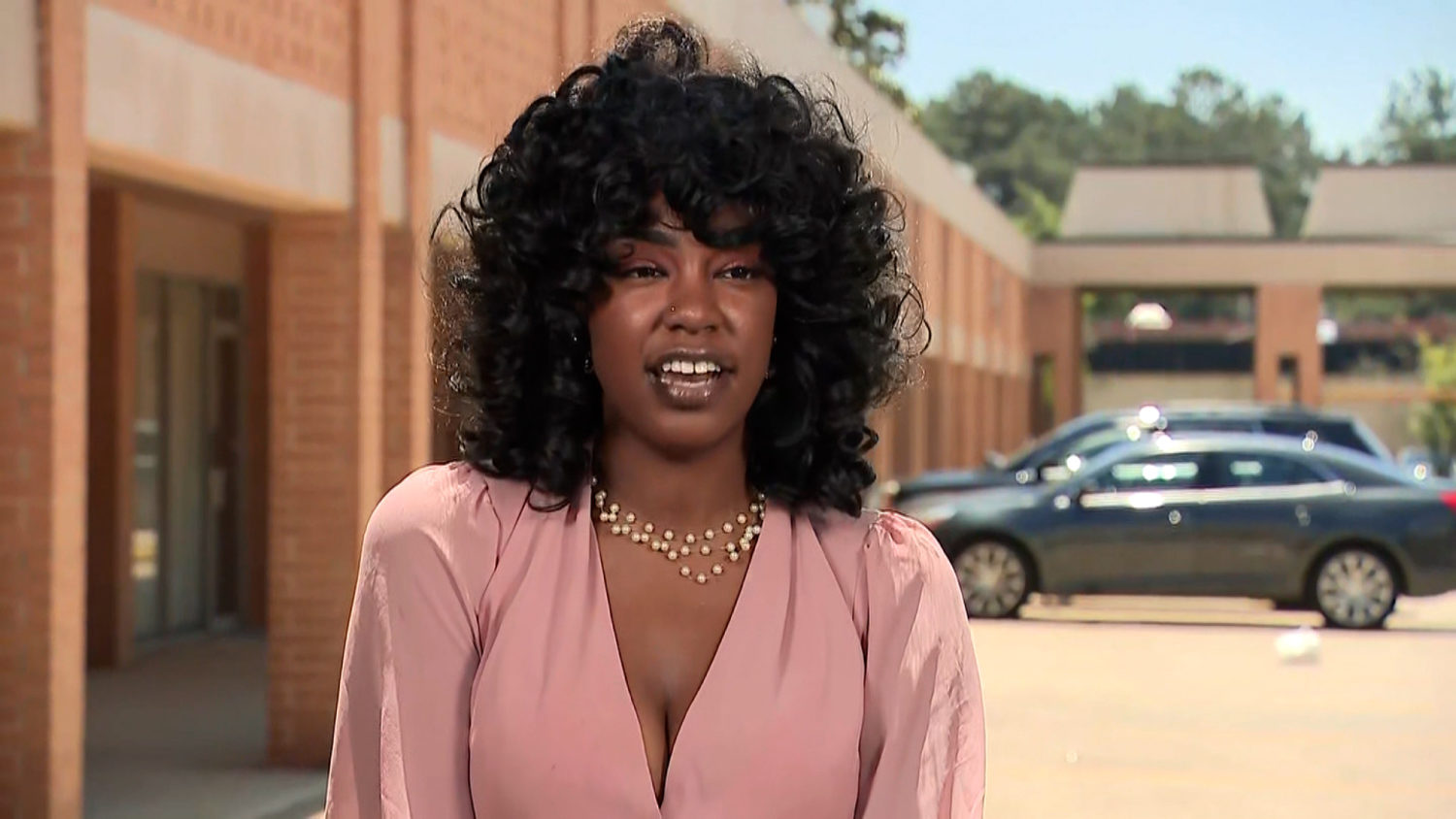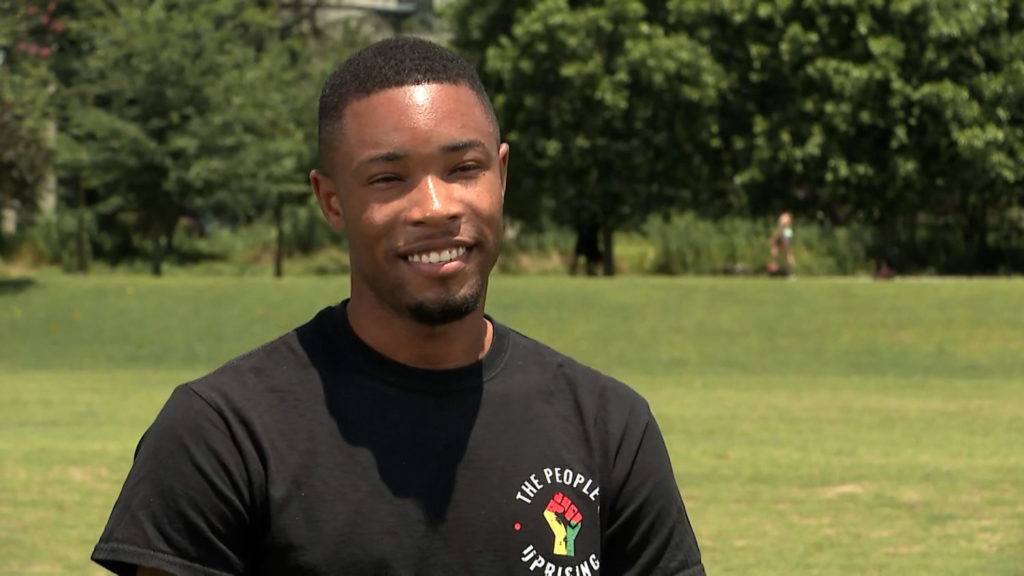
By Amara Walker and Maria Cartaya, CNN
(CNN) — Destiny Britt has given the Covid-19 vaccine a lot of thought and has no plans to get vaccinated anytime soon.
“Don’t take it as when people don’t want to take the vaccine as being rebellious,” she said.
The 21-year Atlanta native is skeptical of the vaccines thanks in large part due to the legacy of Tuskegee syphilis study, she says. Yet, some experts say this isn’t the only reason why some younger people may still be hesitant months after the vaccines became available.
Despite the research she’s done, Britt worries about the potential rare side effects of the vaccines, like myocarditis, a condition that causes inflammation of the heart.
“But how do I know that that small percentage won’t be me?” she asks.
Britt’s continued distrust comes as Covid-19 deaths have fallen dramatically across the United States. Average daily deaths are less than a tenth of what they were at the peak of the pandemic, according to data from Johns Hopkins University — but nearly 300 people are still dying of Covid-19 each day in the US.
Yet, people who died of Covid-19 in May were younger and more disproportionately Black than those who had died of Covid-19 throughout the pandemic, a CNN analysis of CDC data shows. And Americans who are still dying of Covid-19 are “overwhelmingly” unvaccinated, Dr. Anthony Fauci told CNN’s Jake Tapper last week.
Generally, vaccine coverage among young adults has been lower and increasing more slowly over time, compared to other age groups, according to a report published recently by the US Centers for Disease Control and Prevention. Their intent to get vaccinated is also lower. If the weekly pace of vaccinations continues at the rate from the week of May 22, only 57.5% of people under the age of 30 will have received at least one dose of Covid-19 vaccine by the end of August.
The CDC report shows the weekly rate of newly vaccinated adults drop 18-29 years old have slowed from 3.6% to 2%. The CDC director says of the 20 million young people who’ve been vaccinated there have only been about 300 reported cases, which is just .002%.
Britt, who works at an Atlanta record label, says she doesn’t trust the vaccine and instead trusts her own immune system.
“I would just rather go take vitamin C or make sure that I’m eating healthier just to make sure that on my end it’ll be better for my body to fight off rather than just taking the vaccination.”
Britt asserts that she knows Covid-19 is real and she continues to wear a mask at work and around friends and family.
But it’s the mindset among younger people like Britt that worries experts.
“Chances are you’re not going to get that sick. However, even individuals with mild illness could have long-lasting symptoms, said CNN medical analyst Dr. Leana Wen.
“There are people who have lost their hair, people who continue to have loss of the sense of taste or smell. Individuals who have difficulty concentrating memory, lapses, nerve and muscle pain,” she said.
CDC researchers met last week to discuss the very rare cases of myocarditis and pericarditis that have been reported among mostly young men and teens, who’ve been recently vaccinated.
They concluded that the benefits of the mRNA vaccines far outweigh the risks. Wen explained that even if you get myocarditis, chances are you will recover from it within days versus if you get Covid-19 you could get very ill and have long-lasting consequences.
“There is this pervasive narrative that somehow young people don’t get sick and don’t die from coronavirus, which is just not true,” she said.
Wen has taken care of young people who have difficulty with concentrating, with chronic fatigue and even walking down the block because they have had Covid-19.
Stepping up outreach efforts
Britt lives in Georgia — a state with some of the lowest vaccination rates in the country and where Covid-19 deaths were among the highest just last week.
As the White House partners with organizations and private companies to incentivize adults under 30 to get vaccinated, some corporations like Axe, a men’s grooming company, are holding events at places like an Atlanta brewery to lure in younger people.
Black people are the most undervaccinated racial or ethnic group in the US. More than 45% of the US population is fully vaccinated against Covid-19, but coverage among Black people is less than half of that, at about 22%.
“These lower rates may be due in part, to vaccine hesitancy, but they may also be due to inequities in vaccine access,” Dr. Lisa Cooper, founder of the Johns Hopkins Center for Health Equity, told CNN. “Many African Americans in the South live in rural areas with limited access to health care facilities. Furthermore, many people may have other stressors related to housing, food, or job insecurity, which may be preventing them from getting vaccinated.”
Julius Thomas is the CEO and founder of the non-profit, “The People’s Uprising,” and Britt’s friend. She also volunteers with the group.

Ironically, the non-profit is planning on holding vaccine drives this month to target people like Britt.
“Go to skating rinks, go to Topgolf or places like the BeltLine where you know young people congregate,” Thomas says.
Thomas hopes Britt will eventually come around.
“We really are pushing that hard because we care about you that hard,” he says.
But Britt is steadfast in her skepticism.
Although she knows the Black community continues to die of Covid-19 at a higher rate than any other group, she says there’s no telling if and when she may ever get vaccinated.
“I just need to make sure that it’s been around for some time where I know specifically what the side effects are.”
The-CNN-Wire
™ & © 2021 Cable News Network, Inc., a WarnerMedia Company. All rights reserved.



